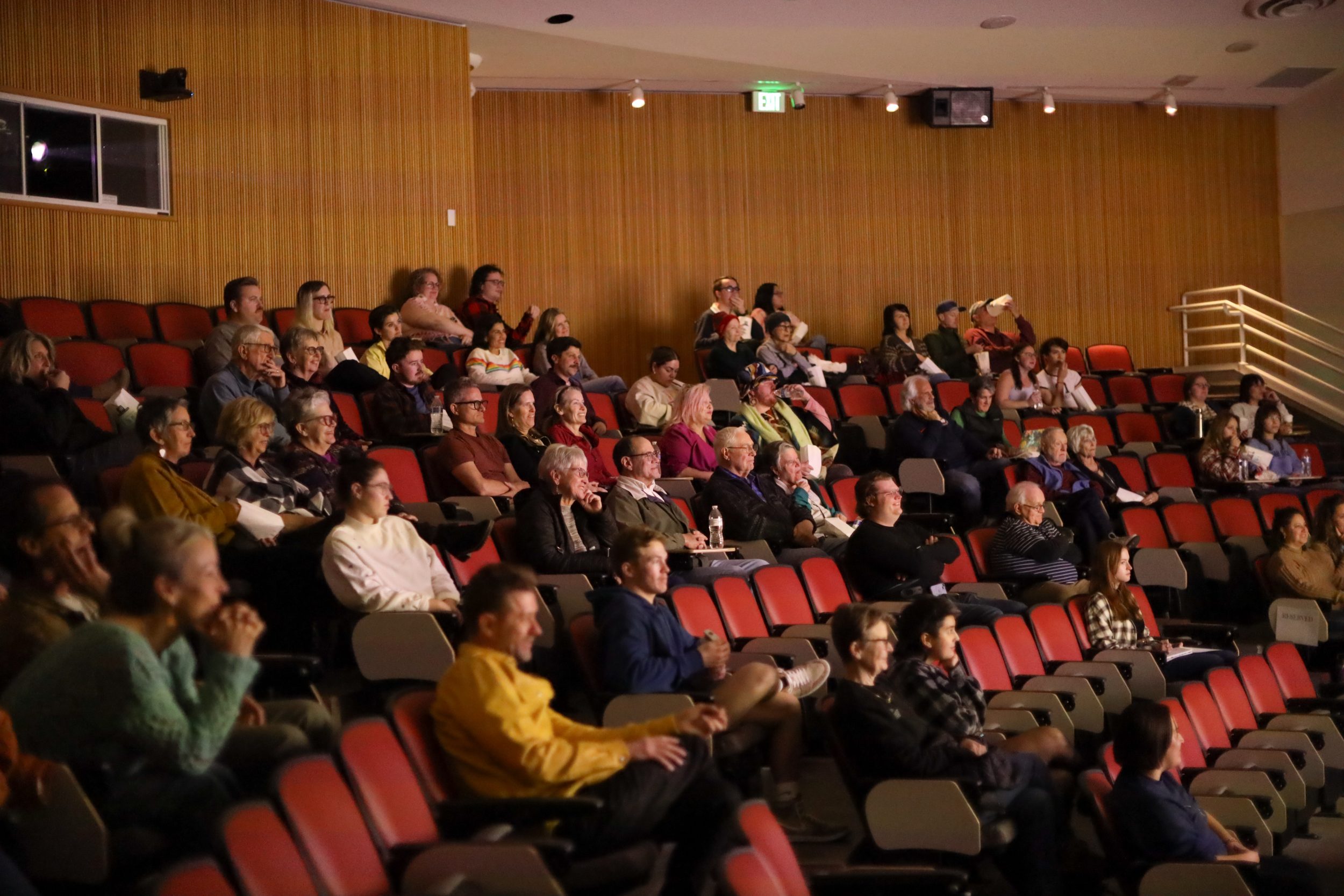Q-Talks was held Jan. 30 at 6 p.m. and showcased an Emmy Award-winning film titled “Quite Heroes.” This film tells the story of the AIDS crisis in Salt Lake City.
Q-Talks, which stands for Queer Talks, was co-hosted by Equality Utah and Utah Tech University’s Center for Inclusion and Belonging.
Essie Gonzsen, southern Utah regional manager for Equality Utah, said, “Q-Talks came about to inspire the younger generation by learning from our LGBTQ predecessors’ stories and accomplishments.”
The film centers around the effect the AIDS crisis had on the LGBTQIA+ population during the 1970s and 1980s. It provides a first-hand account of the people working to help the AIDS patients who were suffering during this time and how the fear and stigma surrounding AIDS made it difficult for patients to get the care they needed.
Dr. Kristen Ries, an infectious disease doctor, and Maggie Snyder, a nurse practitioner, stepped up to help the patients. They were the only two doctors who would help AIDS patients during that time.
Motivation
LGBTQIA+ Student Coordinator Caden Barrett said there may still be a lot of stigma around HIV and AIDS. They wanted to spark conversation, which was their biggest reason for the Q-Talks.
Tiffany Wilson, the moderator for the panel and also the chair of the Utah Tech Board of Trustees, said the event is a tribute to the heroes–Ries, Snyder and the nuns of the Holy Cross, who helped during the crisis.
Barrett said to have Ries and Snyder share their experience and expertise with our community and for people to know they can be around someone with HIV was important.
Barrett said: “Kristen and Maggie, who are in the film, are incredible, incredible women who have done so much for the LGBTQIA community and who are just so selfless and also so humble. They really are quiet heroes.”
Panel discussion
Following the movie was a panel with Ries and Snyder and a man from Utah who was recently diagnosed with HIV last year. The panel had a discussion about their lives and their involvement in the AIDS crisis.
The panel started off with an introduction of the panel members, Ries and Snyder, who have been a couple for years now.
Ries arrived in Utah when the AIDS pandemic was happening. She was the first to care for patients suffering from AIDS, and then dedicated the rest of her career to caring for AIDS patients.
Snyder, who was a nurse practitioner and is now retired, was working as a registered nurse on the HIV unit in 1987 at Holy Cross, which was a Catholic hospital ran by nuns.
Ries and Snyder worked together through the epidemic. Their careers continued into a bureau when the HIV treatment worked, and the patients lived to speak about it.
Resources
Sydney Steuer, a sophomore communication studies major from West Bloomfield, Michigan, is the LGBTQ+ Student Organization president. She said people with HIV are people too and are just as valid as people who don’t have it.
Steuer said, “Everyone has their own things, everyone has their own health problems, and it’s just important to treat everyone equally.”
Steuer talked about PrEP, which is a preventative medication that is taken before people expose themselves to sexual activities that can help prevent contracting HIV.
Utah Tech Booth Wellness Center offers mental and medical help for students. They provide services for minor wound care, sick visits, medical testing, lab work and more. They offer STD testing as well.
Steuer said to take advantage of the resources available. She also said it doesn’t hurt to get tested and that it is important to be aware of your health.
A statistic in 2021 showed the number of HIV deaths in Utah was 43 people compared to the thousands of people who were dying in the 1980s.
Science and society have come a long way over the years. There are more resources available for people today. With the evolution of technology and medicine, people with AIDS can now live longer lives.
Barrett said, “We want people to know that they’re welcome here, that there’s a place for them and that we have programming that can be of interest to everybody and should be of interest to everybody.”




